This guest post is by Kelly Elkins, PhD, a forensic scientist and author of Forensic DNA Biology: A Laboratory Manual.
Students ask me this all the time.
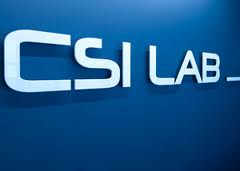 I guess this makes sense. I am a college professor. I teach at one of the places that has a strong track record in forensic science education, research and post-graduate employment.
I guess this makes sense. I am a college professor. I teach at one of the places that has a strong track record in forensic science education, research and post-graduate employment.
You might think there is an easy answer. But actually, the answer is complicated. The “forensic sciences” encompass many diverse specialties. Many require specialized training. So the real question for students is: what do you want to do?
Do you want to investigate crime scenes and collect evidence? Do you want to work in the lab? Do you want to analyze DNA evidence or fingerprints or firearms?
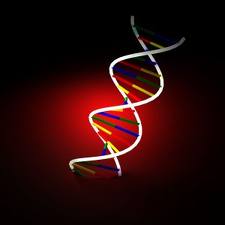 You may be surprised to learn that all of these positions now require a solid education in a natural or physical science, like chemistry or biology or forensic chemistry or forensic biology. The Forensic Education Programs Accreditation Committee (FEPAC) has put their stamp of approval on some forensic science programs that meet their requirements.
You may be surprised to learn that all of these positions now require a solid education in a natural or physical science, like chemistry or biology or forensic chemistry or forensic biology. The Forensic Education Programs Accreditation Committee (FEPAC) has put their stamp of approval on some forensic science programs that meet their requirements.
Don’t worry if you don’t live in the U.S. There are accredited programs in Canada too and other programs world-wide. Most of the FEPAC-accredited programs are housed in Chemistry or Biology departments so you’ll learn the science with the rest of their majors. You will take specialized forensic science courses that will prepare you to work in the crime lab. For example, to work in the DNA Unit, your transcript must list biochemistry, molecular biology, genetics and statistics, among other courses.
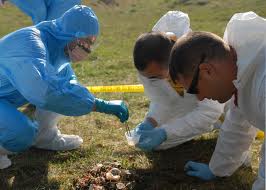 Back to the crime scene. You just want to investigate crime scenes and send the evidence back to the lab? Great. You still need to know how the lab works and the analyses they perform so you don’t send them the kitchen sink if you don’t need to. So enroll in a FEPAC-accredited program just like your friends that aspire to work in the lab, and major in (forensic) biology or chemistry with them.
Back to the crime scene. You just want to investigate crime scenes and send the evidence back to the lab? Great. You still need to know how the lab works and the analyses they perform so you don’t send them the kitchen sink if you don’t need to. So enroll in a FEPAC-accredited program just like your friends that aspire to work in the lab, and major in (forensic) biology or chemistry with them.
I always tell students I won’t place you in an internship in a coroner’s office or with a medical examiner if they don’t want to work with dead bodies.
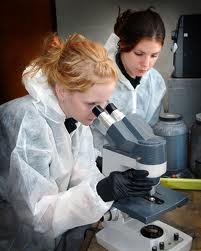 But, if you think this is something you’d like to do, try it out. If that’s where you are dying to work, you should major in (forensic) biology. Minor in chemistry. Or minor in criminalistics. Or even death investigation, if that’s an option. Take courses in anatomy and physiology, biochemistry, toxicology, and crime scene investigation. Apply for jobs as a death investigator or pathology assistant. These will all serve you well in your choice. If you later decide you want to perform the autopsies as the pathologist, you have the prerequisite education to continue further.
But, if you think this is something you’d like to do, try it out. If that’s where you are dying to work, you should major in (forensic) biology. Minor in chemistry. Or minor in criminalistics. Or even death investigation, if that’s an option. Take courses in anatomy and physiology, biochemistry, toxicology, and crime scene investigation. Apply for jobs as a death investigator or pathology assistant. These will all serve you well in your choice. If you later decide you want to perform the autopsies as the pathologist, you have the prerequisite education to continue further.
Do you want to be a coroner?
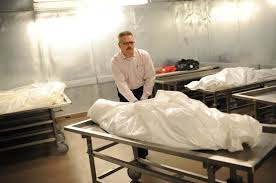 You may need to run for office. In many states, you have to select a party affiliation and become (gasp) a politician. But don’t worry, the dead don’t care which you choose. You also need only a high school diploma or GED in many states. Of course, most of the people interested in the position have significant prior experience in law enforcement or forensic science. You just need to be willing to run the office, hire awesome staff to help you, make ethical judgments and make everyone in your city or county happy.
You may need to run for office. In many states, you have to select a party affiliation and become (gasp) a politician. But don’t worry, the dead don’t care which you choose. You also need only a high school diploma or GED in many states. Of course, most of the people interested in the position have significant prior experience in law enforcement or forensic science. You just need to be willing to run the office, hire awesome staff to help you, make ethical judgments and make everyone in your city or county happy.
Do you want to be a pathologist?
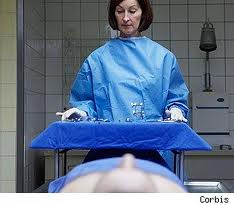 This is a not for the faint at heart. For this, you first need to take the MCAT. This requires you to lay out some cash and time to study for and take the test. After that, you can apply to medical school. For this, you need more cash and more time. Once you get in (that’s it, right ?!?), you need to study medicine for four years including specialized coursework and clinical rotations in all specialties, including working with living people. Finally, you graduate. Take your boards. Complete your residency.
This is a not for the faint at heart. For this, you first need to take the MCAT. This requires you to lay out some cash and time to study for and take the test. After that, you can apply to medical school. For this, you need more cash and more time. Once you get in (that’s it, right ?!?), you need to study medicine for four years including specialized coursework and clinical rotations in all specialties, including working with living people. Finally, you graduate. Take your boards. Complete your residency.
That’s it, right?
Almost. You must now do a pathology fellowship. After toiling for more than a decade, you may now apply for positions as a pathologist or medical examiner.
Whatever you choose, Good luck!
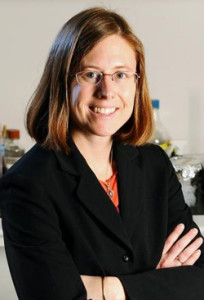 Kelly Elkins, PhD, recently became assistant professor of chemistry in the chemistry department and professional Masters of Forensic Science program at Towson University in Towson, Maryland. Prior to that she was Director of Forensic Science and assistant professor of chemistry at Metropolitan State University of Denver in Denver, Colorado where she oversaw the FEPAC-accredited forensic science program, and internships and undergraduate research program in criminalistics. Her areas of research include low template or trace DNA recovery and quantitation and chemical forensics. Her research has been published in journals including the Journal of Forensic Sciences, Journal of Chemical Education, and Biochemistry and Molecular Biology Education.
Kelly Elkins, PhD, recently became assistant professor of chemistry in the chemistry department and professional Masters of Forensic Science program at Towson University in Towson, Maryland. Prior to that she was Director of Forensic Science and assistant professor of chemistry at Metropolitan State University of Denver in Denver, Colorado where she oversaw the FEPAC-accredited forensic science program, and internships and undergraduate research program in criminalistics. Her areas of research include low template or trace DNA recovery and quantitation and chemical forensics. Her research has been published in journals including the Journal of Forensic Sciences, Journal of Chemical Education, and Biochemistry and Molecular Biology Education.
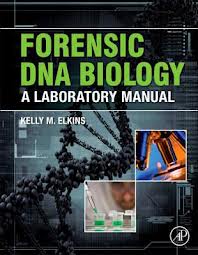 Kelly is also the author of Forensic DNA Biology: A Laboratory Manual, which was recently published by Elsevier Academic Press and is available on Amazon at http://www.amazon.com/Forensic-DNA-Biology-Laboratory-Manual/dp/0123945852/ref=sr_1_1?s=books&ie=UTF8&qid=1375391454&sr=1-1&keywords=forensic+dna+biology . She may be reached at kmelkins@towson.edu.
Kelly is also the author of Forensic DNA Biology: A Laboratory Manual, which was recently published by Elsevier Academic Press and is available on Amazon at http://www.amazon.com/Forensic-DNA-Biology-Laboratory-Manual/dp/0123945852/ref=sr_1_1?s=books&ie=UTF8&qid=1375391454&sr=1-1&keywords=forensic+dna+biology . She may be reached at kmelkins@towson.edu.
